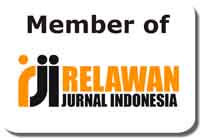Directive Speech Acts in Parenting and Politeness Implications Based on the Schools’ Missions: A Study on Kindergarten Teachers in Teaching Learning Process in Yogyakarta
Abstract
Keywords
Full Text:
PDFReferences
Akmal, S., Fitriah, & Zafirah, H. (2020). Illocutionary Acts in Religious Discourse: The Pragmatics of Nouman Ali Khan’s Speeches. Langkawi: Journal of the Association of Arabic and English. 6(2), 130-141. DOI: http://dx.doi.org/10.3133 2/lkw.v6i2.1938
Anjani, H.D., & Sri Devi. S. (2019). Analisis tindak tutur direktif anak usia 4–5 tahun di TK Bustanul Athfal 3 Kota Makassar. Seminar Internasional Riksa Bahasa XIII, 395–405. http://proceedings.upi.edu/index.php/riksabahasa
Austin, J.L. (1962). How to do things with words. Oxford University Press.
Bornstein, M. H. (2012). Cultural approaches to parenting. Parenting, 12, 212–221. doi:10.1080/15295192.2012.683359
Chen, Shu-chu & Chen, Shu-Hui E. (2007). “Interlanguage Requests: A Cross-Cultural Study of English and Chinese”. The Linguistics Journal. Volume 2 Number 2.
Daly, M. (2013). Parenting support policies in Europe. Families, Relationships and Societies, 2(2), 159–74 http://dx.doi.org/10.1332/204674313X666886
Dwairy, M., Farah, A., & Achoul, M. (2006). Parenting styles, individuation, and mental health of Arab adolescents: A third cross-regional research study. Journal of Cross-Cultural Psychology, 37(3), 262-272. DOI: 10.1177/0022022106286924
Ellingsen, R., Baker, B.L., Blacher, J., & K. Crnic, K. (2014). Resilient parenting of preschool children at developmental risk. Journal of Intellectual Disability Research, 58(7), 664–678. doi: 10.1111/jir.12063
Flowerdew, J. (2013). Discourse in English Language Education. Routledge.
Hermawan, A., & Hadi, S. (2021). Akulturasi budaya baca terhadap tindak-tutur direktif AUP era digital (Kajian kelompok belajar TK PKK I Kelurahan Bendogerit Kota Blitar). BRILIANT: Jurnal Riset dan Konseptual, 6(1), 99-109. DOI: http://dx.doi.org/10.28926/briliant. v3i4.586
Kosim, M., Samad, D., Nasution, I., Kustati, M., Rivauzi, A., & Anidar. J. (2020). Cadre model inspirative based on Islamic parenting and Minangkabau local wisdom. Advances in Social Science, Education and Humanities, volume 458, Proceedings of the International Conference on Social Studies, Globalisation and Technology (ICSSGT 2019) Atlantis Press.
Kreidler, C.W. (1998). Introducing English semantics. Routledge
Lachmana, J.M., Cluvera, L., Ward, C.L., Hutchingse, J., Mlotshwaf, S., Wesselsc , I., & Gardnera, F. (2017). Randomized controlled trial of a parenting program to reduce the risk of child maltreatment in South Africa. Child Abuse & Neglect. http://dx.doi.org/10.1016/j.chiabu.2017.08.014
Leech, G. (2014). The pragmatics of politeness. Oxford University Press.
Lestari, G. D. (2017). Madurese migrants socioculture and early childhood parenting: A case study in the Sombo Kampong Sidotopo Sub District Semampir District of Surabaya, East Java, Indonesia. Indonesian Journal of Early Childhood Education Studies, IJECES, 6(2). DOI 10.15294/ijeces.v6i2.20190
Levinson, S.C. (1983). Pragmatics. Cambridge University Press.
Meinck, F., Cluver, L. D., Boyes, M. E., & Loening-Voysey, H. (2016). Physical, emotional, and sexual abuse of children in South Africa: Incidence, prevalence, perpetrators, and locations. Journal of Epidemiology and Community Health,
Moloeng, L.J. (2005). Metodologi penelitian kualitatif. Rosda.
Muhartoyo & Kristani, K. (2013). Directive speech act in the movie “Sleeping Beauty”. Humaniora, 4(2), 949-966.
Musi, M. A., & Syamsuardi. (2017). Socio-cultural values of early childhood parenting (Ethnographic research on Bugis Makassar South Sulawesi). Indonesian Journal of Early Childhood Education Studies, IJECES, 6 (1), 57-83.
Noviandari, H., & Mursidi, A. (2020). Fathering in parenting for early children in Banyuwangi city East Java Indonesia. Internasional Journal Of Education Schoolars, 1(1). http://jurnal.icjambi.id/index.php/ijes/index
Poedjosoedarmo, S. (2017). “Language propriety in Javanese”. Journal of language and literature. 17(1), 1 - 9.
Putri , H., Suriansyah, A., & Wahdini, E. (2019). Effect of education and income levels and parenting patterns on children's social behavior. Journal of K6, Education, and Management (J-K6EM), 2(2), 97-106.
Rachman. (2015). Tindak tutur dalam proses belajar-mengajar pada taman kanak-kanak Dharma Wanita Kelurahan Wapunto Kecamatan Duruka Kabupaten Muna (Kajian pragmatik). Jurnal Humanika. No 15, Vol. 3, December 2015.
Rachmawati, Y., & Kurniati, E. (2010). Strategi pengembangan kreativitas pada anak usia taman kanak-kanak. Prenada Media Group.
Rakhmawati, Effendi, E., & Darmiyati. (2019). The effect of parenting patterns and birth order towards the independent social behavior of kindergarten children in Gugus Anggrek, East Banjarmasin District. Journal of K6, Education, and Management (JK6EM), 2(2), 139 – 148.
Ratminingsih, M. (2013). Tindak tutur guru dalam proses belajar mengajar di TK Wangun Sesana Penarukan Singaraja. Jurnal Pendidikan Bahasa dan Sastra Indonesia Undiksha, 1(8), 1-11. DOI: http://dx.doi.org/10.23887/jjpbs.v1i8.1183
Riany, E.Y., Meredith, P., & Cuskelly, M. (2016). Understanding the influence of traditional cultural values on Indonesian parenting. ROUTLEDGE, Taylor& Francis Group
Rismayutinna, B.W. (2021). An analysis of directive speech act in 3 years old children in daily conversation with their mom. Eduvest, 1(1). http://eduvest.greenvest.co.id/indekx/php.edv
Salami, B., Hirani, S. A. A., Meherali, S., Amodu, O., & Chambers, T. (2017). Parenting practices of African Immigrants in destination countries: A qualitative research synthesis. Journal of Pediatric Nursing. 36, 20–30. http://dx.doi.org/10.1016/j.pedn.2017.04.016
Sari, K.P. (2018). Teacher’s directive speech acts at kindergarten school. Vision: Journal for Language and Foreign Language Learning, 7(1), 34-44. http://dx.doi.org/10.21580/vjv7i12735
Searle, J. R. (1969). Speech acts: An essay in the philosophy of language. Cambridge University Press.
Sriprakasha, A., Proctor, H., & Hu, B. (2015). Visible pedagogic work: Parenting, private tutoring and educational advantage in Australia. Discourse: Studies in the Cultural Politics of Education. http://dx.doi.org/10.1080/01596306.2015.1061976
Supratti, Sartika, Z., & Pulungan, A. (2020). The relation between parenting pattern with the development of Baduta in Mamuju Regency, West Sulawesi. Urban Health, 2(1) . http://journal.poltekkes-mks.ac.id
Susanti, R., Sumarlam, Djatmika, & Rohmadi, M. (2020). Students-lecturer(s’) speech acts in the academic practical teaching situated-communication. RETORIKA: Jurnal Bahasa, Sastra, dan Pengajarannya, 13(1), 84–96. DOI: 10.26858/retorika.13i1.11707
Swari, S.G., Tantra, D.K., & Pratiwi, N.P.A. (2020). Classroom communication in early childhood education. Journal of Educational Research and Evaluation, 4(4), 328 – 336.
Williams, M., & Moser, T. (2019). The art of coding and thematic exploration in qualitative research. International Management Review, 15(1), 45-55.
Wulansari, Y., & Suhartini, C. (2015). Directive speech acts realization of Indonesian EFL Teacher. English Review: Journal of English Education, 3(2), 223-229.
Yin, R.K. (2018). Case study research and applications. Sixth edition. SAGE Publications, Inc.
Yousaf, S. (2015). The relation between self-esteem, parenting style and social anxiety in girls. Journal of Education and Practice. 6(1), 140-142.
Yule, G. (1996). Pragmatics. Oxford University Press.
DOI: http://dx.doi.org/10.31332/lkw.v7i1.2560
Copyright (c) 2021 Surono - Surono

This work is licensed under a Creative Commons Attribution-ShareAlike 4.0 International License.
Langkawi: Journal of The Association for Arabic and English indexed by:


















.png)
.png)

.png)
2.png)








